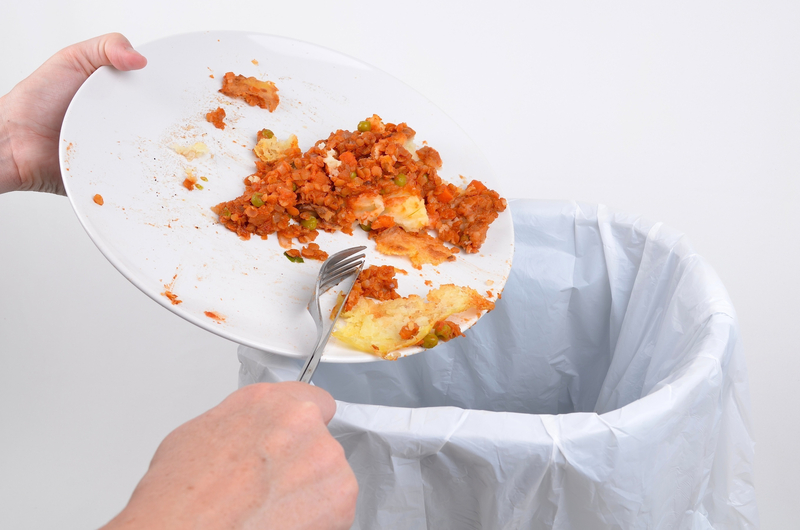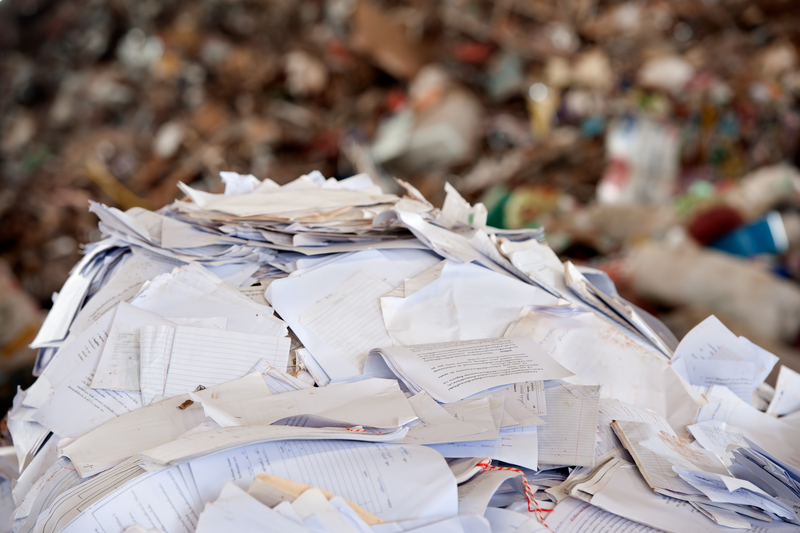A Beginner's Guide to Composting
Posted on 07/06/2025
A Beginner's Guide to Composting
Composting is an environmentally friendly way to recycle organic waste and produce nutrient-rich soil for gardens and plants. This beginner's guide covers everything you need to know to start composting at home.
What is Composting?
Composting is the process of breaking down organic materials, such as kitchen scraps and yard waste, into a nutrient-rich soil amendment known as compost. By facilitating the natural decomposition process, composting transforms waste that would otherwise end up in landfills into something beneficial.

Why Compost?
There are numerous reasons to start composting. First, it reduces the amount of waste sent to landfills, lessening landfill stress and decreasing greenhouse gas emissions. Second, compost improves soil health by increasing its nutrient content, enhancing its structure, and boosting its ability to retain moisture. Lastly, composting can save money on fertilizers and soil conditioners.
Materials Needed for Composting
1. **Compost Bin**: You'll need a compost bin or pile. There are various types, including tumblers, stationary bins, and even simple DIY piles.
2. **Green Materials**: These are nitrogen-rich items like fruit and vegetable scraps, coffee grounds, and fresh grass clippings.
3. **Brown Materials**: These are carbon-rich materials such as dried leaves, straw, paper, and cardboard.
4. **Water**: Composting requires moisture to help break down materials.
5. **Aeration Tool**: A pitchfork or a compost aerator will help you turn the compost and keep it oxygenated.
Starting Your Compost Pile
1. **Choose a Location**: Pick a level, well-drained spot in your yard for your compost pile or bin.
2. **Create a Base Layer**: Start with a layer of coarse materials like twigs or straw to help with drainage and aeration.
3. **Layering**: Alternate layers of green and brown materials. Aim for a 2:1 ratio of browns to greens to maintain a balance of carbon and nitrogen.
4. **Moisture**: Keep your compost pile as moist as a wrung-out sponge. Water it periodically, especially during dry spells.
5. **Aeration**: Turn your compost pile every few weeks to introduce oxygen and speed up the decomposition process.
Maintaining Your Compost
To produce high-quality compost, you need to manage the pile correctly.
- **Temperature**: A well-maintained compost pile will heat up, even steaming in cooler weather. This is a sign that decomposition is happening.
- **Moisture**: Check the moisture level regularly. If it's too dry, add water. If it's too wet, add more brown materials.
- **Turning**: Regularly turning the compost helps to aerate it and speed up decomposition.
Compostable and Non-Compostable Items
**Compostable**:
- Fruit and vegetable scraps
- Coffee grounds and filters
- Tea bags
- Eggshells
- Grass clippings
- Leaves
**Non-Compostable**:
- Meat and dairy products
- Fats and oils
- Diseased plants
- Pet waste
- Non-biodegradable materials (plastics, metals)
Pros and Cons of Composting
**Pros**:
- Reduces landfill waste
- Produces nutrient-rich soil
- Reduces the need for chemical fertilizers
- Lowers your carbon footprint
- Improves soil health and structure
**Cons**:
- Requires time and effort
- Can attract pests if not managed correctly
- Needs space, which can be a limitation in urban areas
- Requires balancing green and brown materials
Tips for Successful Composting
- **Chop Materials**: Smaller pieces break down faster. Chop or shred large items before adding them to your compost.
- **Diverse Materials**: Use a variety of green and brown materials to ensure a well-balanced compost.
- **Compost Activators**: Commercial compost activators can kickstart the composting process.
- **Avoid Odors**: To prevent bad smells, avoid composting meat, dairy, and oily foods. Ensure good aeration by turning the compost regularly.

Takeaways
- Composting reduces waste and enhances soil health.
- A balanced mix of green and brown materials is crucial.
- Regular maintenance like turning and watering is needed.
- Avoid adding materials that attract pests or produce odors.
Conclusion
Composting is a manageable, rewarding process that benefits both your garden and the environment. By following the steps and tips outlined in this guide, you'll be well on your way to producing rich, fertile compost that can transform your garden. Start composting today and contribute to a sustainable future!
Happy composting!
Latest Posts
Resource Efficiency with Polystyrene Recycling
Essential Hacks for a Tidy Home




